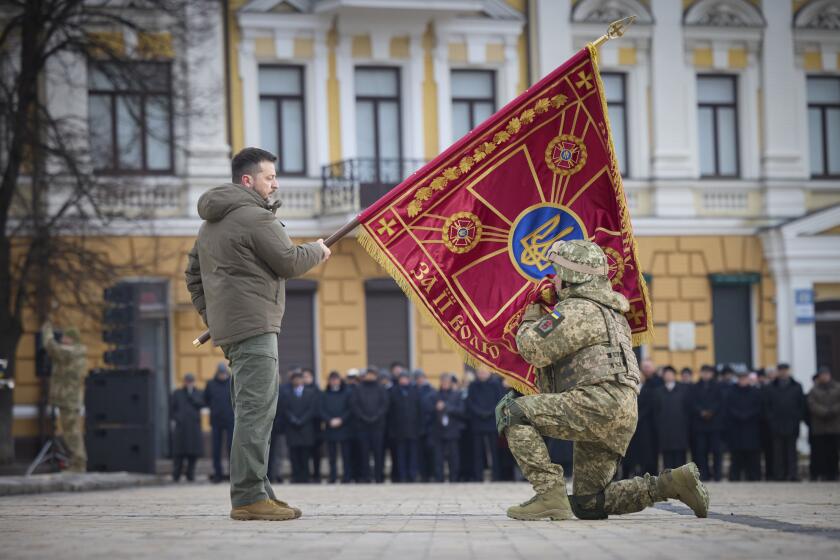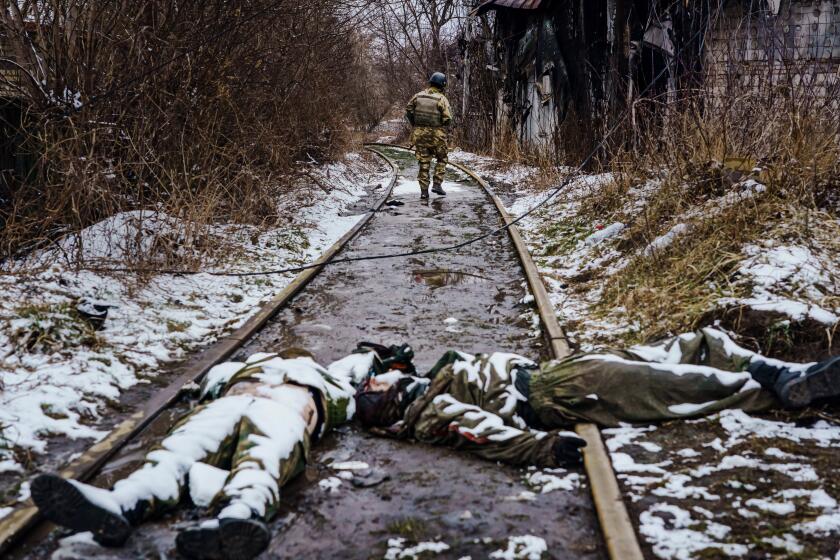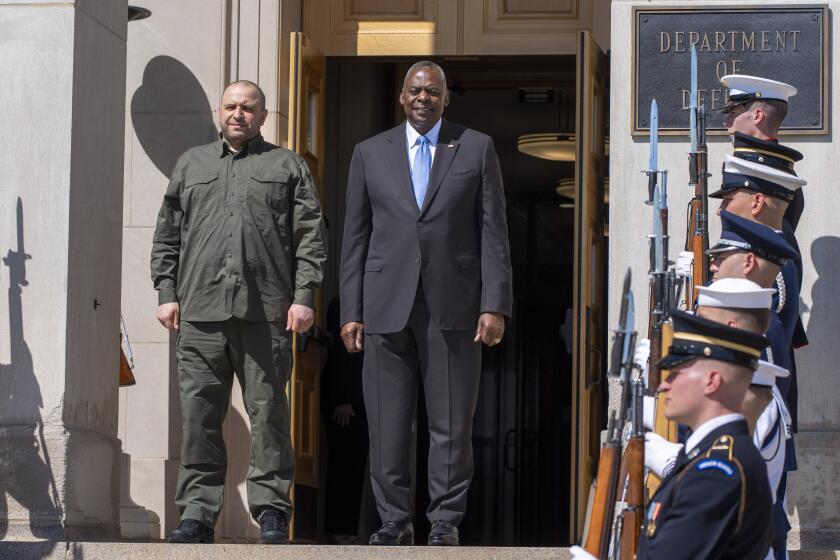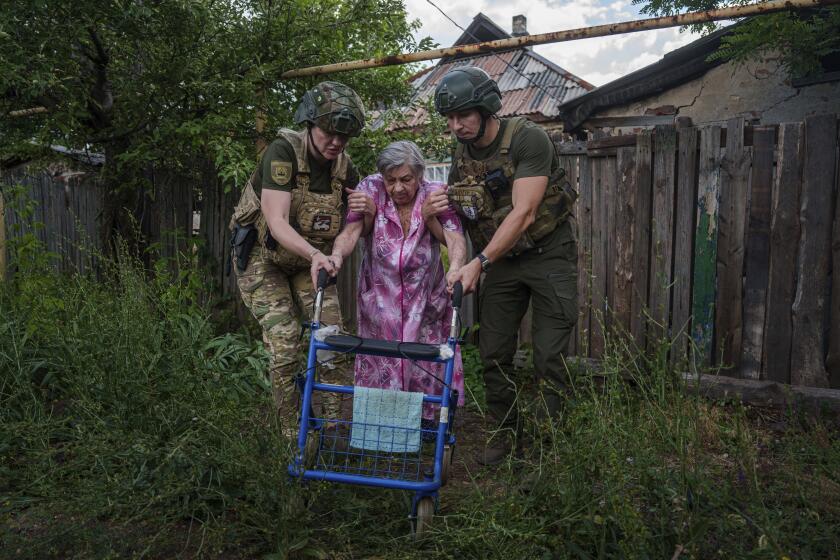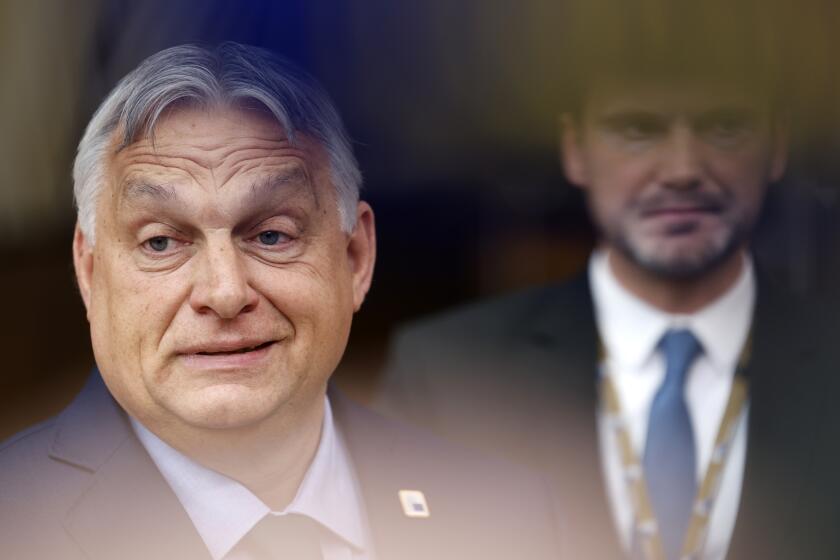U.N. overwhelmingly approves resolution calling on Russia to withdraw from Ukraine
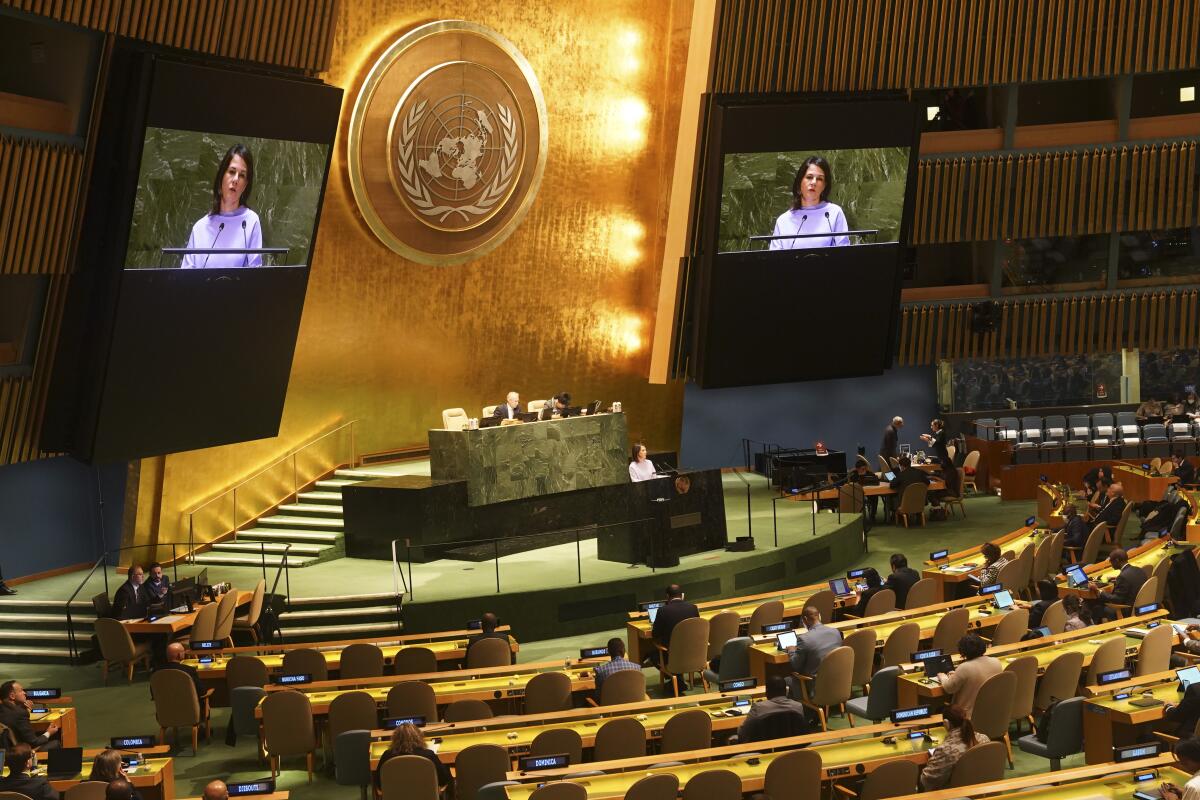
The United Nations General Assembly approved a nonbinding resolution Thursday that calls for Russia to end hostilities in Ukraine and withdraw its forces, sending a strong message to Moscow as its invasion enters a second year.
The resolution, drafted by Ukraine in consultation with its allies, passed 141-7, with 32 abstentions. The seven countries voting against it were Belarus, Nicaragua, Russia, Syria, North Korea, Eritrea and Mali, which has developed close military ties with Russia. Amendments proposed by Belarus that would have stripped the resolution of much of its language were resoundingly defeated.
Ukrainian Foreign Minister Dmytro Kuleba said the lopsided vote was more evidence that it is not only the West that backs his country.
“This vote defies the argument that the global south does not stand on Ukraine’s side,” Kuleba said. “Many countries representing Latin America, Africa, Asia voted in favor.”
U.S. national security advisor Jake Sullivan called the vote “an overwhelming demonstration of support for Ukraine — and a clear defense of freedom for people everywhere.”
The General Assembly has become the most important U.N. body dealing with Ukraine because the Security Council, which is charged with maintaining international peace and security, is paralyzed by Russia’s veto power. General Assembly resolutions are not legally binding, unlike Security Council resolutions, but serve as a barometer of world opinion.
Across the country, Ukrainians looked back on a year of war with both sorrow and pride as their president vowed to push for victory over Russia.
The vote in support of Ukraine was slightly below the highest total of the five previous resolutions approved by the 193-member world body since Russia sent troops and tanks across the border into its smaller neighbor on Feb. 24, 2022. That tally, in an October resolution against Russia’s illegal annexations of Ukrainian territory, won approval from 143 countries.
Foreign ministers and diplomats from more than 75 countries addressed the assembly during two days of debate, with many urging support for the resolution affirming Ukraine’s territorial integrity, a basic principle of the U.N. Charter that all countries must subscribe to when they join the world organization.
The war has killed tens of thousands on both sides and has reduced entire Ukrainian cities to ruins, and its impact has been felt worldwide in higher food and fuel costs.
Venezuela’s deputy ambassador addressed the council on behalf of 16 countries that either voted against or abstained on almost all of the five previous resolutions on Ukraine: Belarus, Bolivia, Cambodia, China, Cuba, Eritrea, Equatorial Guinea, Iran, Laos, Mali, Nicaragua, North Korea, St. Vincent, Syria, Venezuela and Zimbabwe.
Los Angeles Times photographers document the battle in Ukraine after Russian forces invaded nearly a year ago.
While other countries focused on Russia’s actions, Venezuelan Deputy Ambassador Joaquín Pérez Ayestarán said Wednesday that all countries without exception “must stringently comply with the United Nations Charter,” a barely veiled dig at an international order long dominated by the U.S. and Europe, and at what some call their violations of the charter.
Ayestarán said the countries in his group were against what he described as divisive action in the General Assembly, and called for “a spirit of compromise.”
European Union foreign policy chief Josep Borrell told reporters that the aggressor and the victim couldn’t be considered on equal terms. But China’s deputy U.N. ambassador, Dai Bing, told the assembly Thursday: “We support Russia and Ukraine in moving towards each other. ... The international community should make joint efforts to facilitate peace talks.”
China says it is neutral in the conflict and an advocate of peace talks, but has not criticized the invasion or described it as such. Beijing has condemned the U.S. and its allies over sanctions on Moscow and military assistance to Ukraine. China and Russia have increasingly aligned their foreign policies to oppose the U.S.-led international order.
More to Read
Start your day right
Sign up for Essential California for news, features and recommendations from the L.A. Times and beyond in your inbox six days a week.
You may occasionally receive promotional content from the Los Angeles Times.
